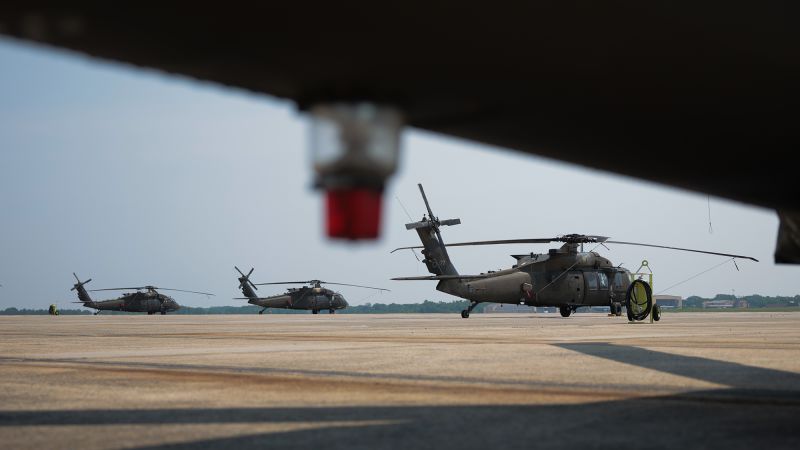Senator Demands Flight Tracking for Army Helicopters: New Bill to Prevent Future Tragedies

A crucial piece of legislation is set to be introduced by a leading US Senator, aiming to mandate the consistent operation of vital flight tracking technology on Army helicopters. This move comes in direct response to recent incidents where this technology was deactivated, raising serious concerns about safety and accountability.
Senator [Senator's Name], chair of the [Relevant Committee, e.g., Senate Committee on Commerce, Science, and Transportation], announced their intention to draft and introduce the bill, stating it will effectively “close the regulatory loophole” that permitted the recent operation of an Army Black Hawk helicopter without essential flight tracking capabilities. This loophole has been identified as a significant contributing factor to the challenges faced in locating and recovering the helicopter after it went missing.
The incident, which involved a Black Hawk helicopter disappearing over [Location], highlighted the critical importance of real-time flight tracking. Without this data, search and rescue efforts were significantly hampered, delaying response times and increasing the risk to personnel. The Senator's bill seeks to ensure that such situations are prevented in the future.
What the Bill Entails:
- Mandatory Activation: The proposed legislation will require all Army helicopters to maintain active flight tracking technology during operation.
- Data Accessibility: The bill aims to ensure that flight tracking data is readily accessible to relevant authorities, including search and rescue teams and accident investigators.
- Increased Oversight: It will also strengthen oversight mechanisms to ensure compliance with the new regulations.
- Penalties for Non-Compliance: The bill will outline clear penalties for any violation of the flight tracking requirements.
“The safety of our military personnel is paramount,” Senator [Senator's Name] stated. “This bill is a direct response to the recent tragedy and a necessary step to prevent similar incidents from occurring again. It’s simply unacceptable that critical safety technology can be deactivated, putting lives at risk. We must learn from this experience and implement robust safeguards to ensure the safety and well-being of those who serve our nation.”
Industry and Military Response: While the bill has been met with widespread support from safety advocates and family members of those affected by the incident, some within the military have expressed concerns about the potential logistical and financial burdens of implementing the new requirements. The Senator’s office has indicated a willingness to work with the Department of Defense to address these concerns and ensure a smooth transition.
Looking Ahead: The bill is expected to be introduced in the Senate shortly and will likely face debate and amendments before a final vote. Its passage would represent a significant victory for aviation safety and a testament to the importance of proactive measures to protect lives. The focus now shifts to garnering bipartisan support and ensuring the bill’s swift enactment into law. This is a critical moment for improving aviation safety within the US military and setting a new standard for accountability and transparency.






